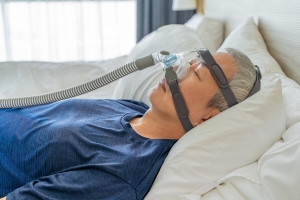In the late 20th century, Austria's wine industry, known for its high-quality yet affordable wines, faced an unexpected challenge. The issue began when German retailers, seeking sweet white wines, struck deals with Austrian winemakers, demanding wines that met the German Prädikat scale's criteria for sweetness and quality. This led to a crisis when weather changes resulted in an overproduction of grapes, resulting in poorer quality wines. To meet contractual obligations and enhance the flavor of these substandard wines, some winemakers resorted to adding diethylene glycol, a chemical found in antifreeze.
The Pros and Cons of Antifreeze in Wine
Pros
- Taste and Body Enhancement: Diethylene glycol was used to sweeten the wine and improve its body, masking the flaws caused by excess grape production.
- Cost-Effectiveness: This chemical presented a cheap solution for winemakers struggling with financial pressures due to surplus grape yields.
Cons
- Deception and Ethical Breach: Adding antifreeze not only misled consumers about the wine's quality but also exposed them to health risks.
- Health Risks: Diethylene glycol is highly toxic and potentially lethal, even in small quantities.
- Industry Fallout: The revelation of this practice damaged consumer trust and led to regulatory changes in the wine industry.
Health Statistics of Antifreeze in Wine
The health implications of antifreeze, specifically diethylene glycol, in wine are both immediate and long-term, posing serious risks to consumers. When wine contaminated with diethylene glycol is consumed, the immediate effects can be distressing. Individuals may experience a range of symptoms such as nausea, vomiting, severe abdominal pain, and dizziness. These symptoms are not only discomforting but also signal the body's adverse reaction to a toxic substance. The onset of these symptoms can vary, depending on the amount of contaminated wine consumed and the individual's overall health.
Over the long term, the health risks become even more severe. Prolonged exposure to diethylene glycol, even in small amounts, can lead to critical damage to vital organs. The liver and kidneys are particularly susceptible to damage from this chemical. The liver, being a primary detoxifying organ, is strained as it attempts to filter out the toxic substance. Over time, this strain can lead to liver dysfunction or severe liver damage. Similarly, the kidneys, which are responsible for filtering waste products from the blood and excreting them in urine, can also be severely affected. Prolonged exposure to diethylene glycol can cause kidney damage or failure, a condition that can have life-threatening consequences and may require long-term medical treatment such as dialysis or even organ transplantation.
One of the most challenging aspects of treating diethylene glycol poisoning is the lack of a specific antidote. Medical professionals often have to resort to supportive care, which includes managing the symptoms and preventing further absorption of the toxin. Treatments may include intravenous fluids, medications to control symptoms like nausea, and in severe cases, renal dialysis to support failing kidneys. However, the effectiveness of these treatments can be limited, especially if the poisoning is not promptly identified and treated.
Another significant concern is the potential underreporting of diethylene glycol poisoning. The secretive nature of its use in wine production means that many cases may go unnoticed or unreported. This lack of reporting can hinder medical and regulatory efforts to understand the scope of the problem and to intervene effectively. Underreporting also obscures the true incidence of poisoning, making it challenging to implement preventive measures and to warn consumers about the risks.
How to Check for Antifreeze in Wine
- Avoid Speculative Conclusions: Focus on factual information rather than assumptions about specific wines or wineries.
- Reliable Sources: Seek information from official health departments, scientific studies, or recognized experts.
- Steer Clear of Sensationalism: Present information calmly and informatively, avoiding alarmist language.
- Disregard Unproven Methods: Do not promote unverified home tests or remedies for detecting diethylene glycol.
- Official Health Advisories: Check for health advisories or alerts from regulatory bodies regarding specific wine brands or batches.
- Reputable Sources: Purchase wine from established wineries and retailers known for stringent quality standards.
The Austrian wine scandal serves as a cautionary tale about the importance of ethical practices in the food and beverage industry. It highlights the need for transparency and adherence to safety standards to protect consumer health and maintain trust in the industry. This incident underscores the potential dangers of prioritizing profit over safety and the long-term consequences of such actions.






